FOOD REVIEW: Kin by Damian D'Silva—long may its reign hold supreme

SINGAPORE — Do you know what's hard to pull off in Singapore? A restaurant that purports to offer innovative dishes inspired by several things—a feeling, a memory, a book, a fragrance, a loveless marriage, a forgotten childhood. But what's even harder, almost impossibly so, is to convince Singaporeans to step out of their air-conditioned comforts and haul their Chanel 2.55s out to food establishments that boast proudly heritage food which used to grace the kitchens of our parents and grandparents. It's an uphill climb that has not been made easier even with Michelin themselves honouring traditional Singapore Peranakan cuisine with two shining stars.
I think it boils down to people in this country regarding our traditional cuisine as less haute couture and more pedestrian. They deign to plonk down top dollars to pay for a bowl of curry chicken cooked with reverence and respect to tradition, but throw in a simple wagyu steak at top dollars, and it's as if they've died and gone to food heaven.
READ MORE:
INTERVIEW: Chef Damian D’Silva of Kin on exploring identity through heritage food
Malaysian-style Nasi Lemak lands in Singapore
FOOD REVIEW: Go Noodle House from Malaysia opens at 313 Somerset for a slurping good time
7 Chinese New Year feasts to usher in the Year of the Rat
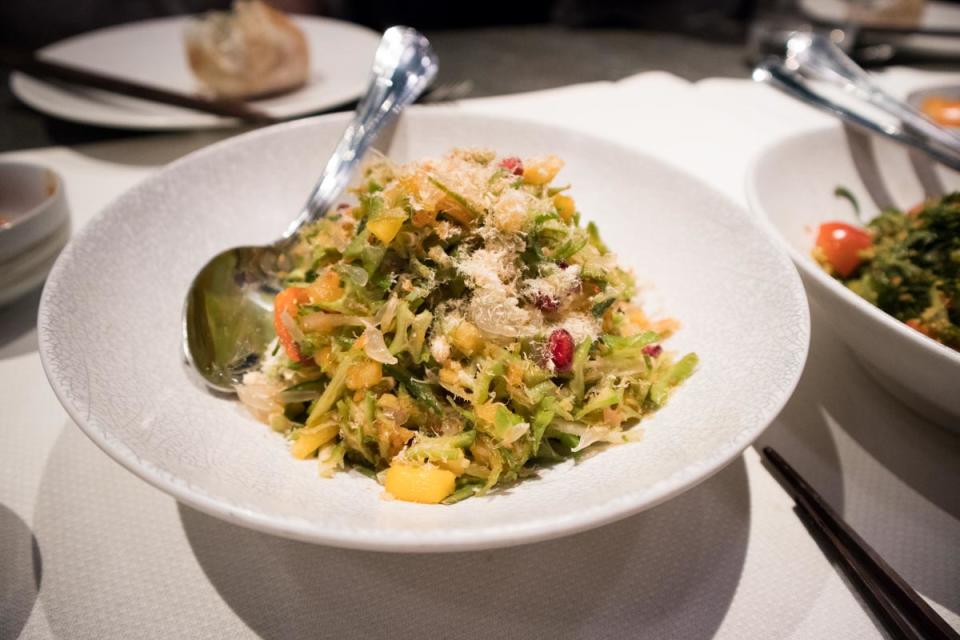
It makes partnerships such as Chef Damian D’ Silva and Lo & Behold Group a heroic one. The two stalwarts of Singapore dining coming together to birth Kin is an exercise in courage as much as it is in keeping with Chef Damian's relentless fight to preserve a slice of food heritage as he remembers it. Having shed all remaining traces of Folklore off his shoulders, Chef Damian is now back with renewed fervour with Kin, so named as a "reminder to hold on to the things that make us who are"—the menu proclaims.
Kin is located within a nook of Straits Clan club—that gilded mise en scène that's so painfully hip that many don't even know its welcoming accessibility to the general public. In the dining room is where Kin has set up shop in an arresting space that is engulfed in a pervading shade of dark jade, old gold, warm woods, warm lights, and grey tabletops. The efficient servers fleet about in a safari-esque, dark green jacket and are just as effusive about the food served here as they are about stellar service.
Chef Damian makes it a point to remind me several times throughout the meal that this is not exclusively Peranakan food. It's Singapore food which can count in its company, dishes influenced by the Bugis, Indian, Malay, and Chinese community. The menu is blindingly familiar and filled with dishes most people have tried and have had terse opinions on.

It starts with a heaping bowl of ulam. At Kin, Chef Damian reintroduces into the culinary psyche the fresh and herbaceous daun pegaga (S$15++)—utilised by the Chinese as a juice that cools the body, the Indians as a brain tonic, and the Malays, as a salad. Here, it has been thinly sliced into delicate ribbons of green and tossed with winged bean and an addictive calamansi dressing. What's equally addictive is the heritage salsa (S$15)—a brightly coloured and flavoured seasonal market salad with small chunks of whatever fruits are available at the time. Today it's mango, pomegranate, and pomelo tossed in a dressing that's equal parts citrusy and slightly spiced. If I were on a diet, the two salads would have sufficed. But I'm not. So, I plough on.
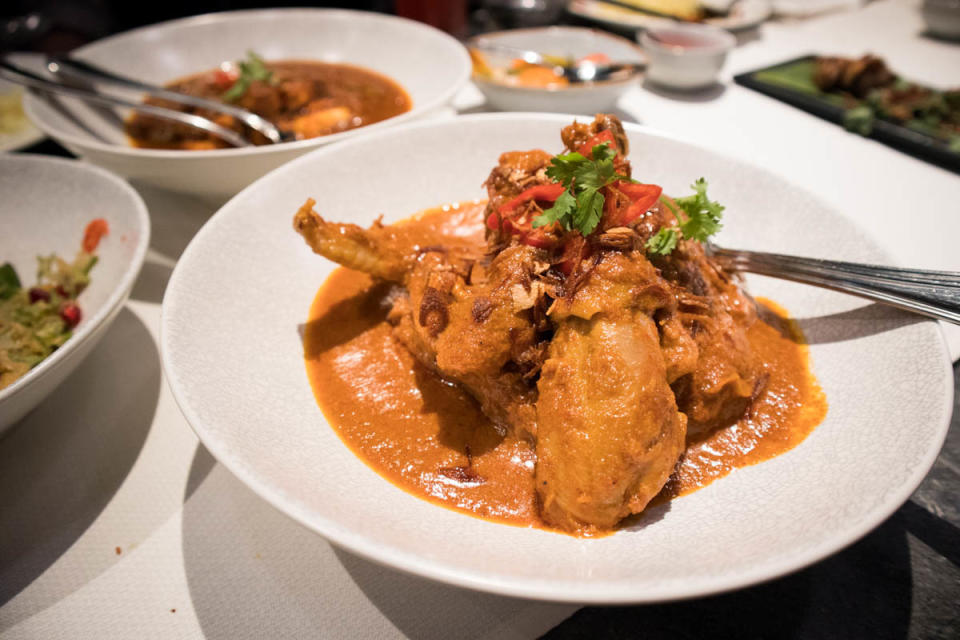
I've saved most of my appetite for this juncture where large sharing bowls of dishes with Malay names begin filling up our table like a condensed Tok Panjang—condensed because we're only occupying three tables and for lack of 21 other individual dishes. A quantity that's de rigueur for a Peranakan feast. Here is where Chef Damian feels the freest of all shackles of conformity and is where his passion and talent shines. The Ayam Lemak Chilli Padi ($36++) glows bright amber, a marked difference from common iterations where it's a pale yellow and spiced by cooking the chilli padi whole into the kerfuffle of rempah. Here, whole chillies are blended and mixed into the rempah for an orangey hue but not straying far from the flavours of a lemak chilli padi we're familiar with.
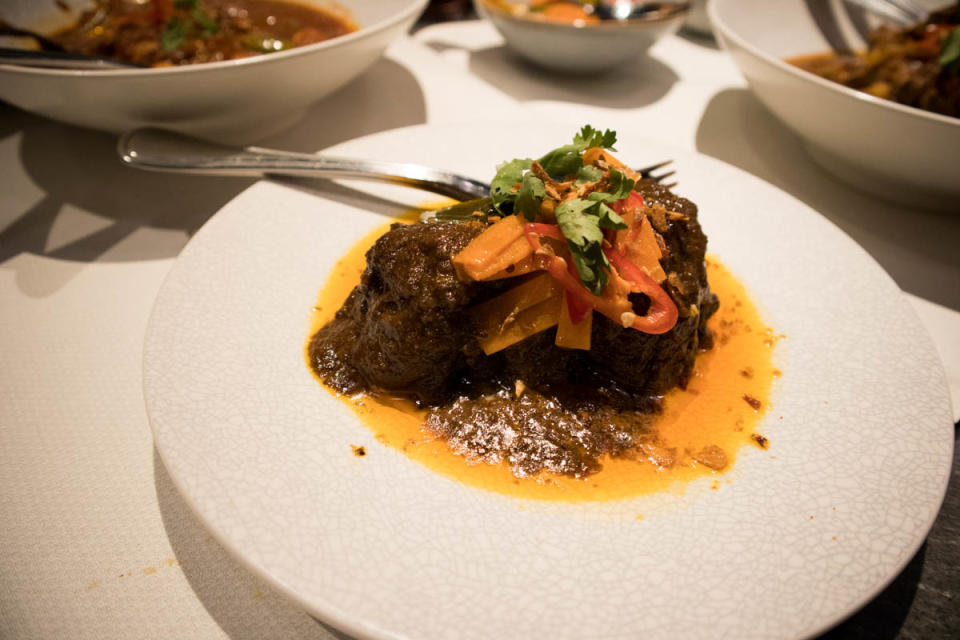
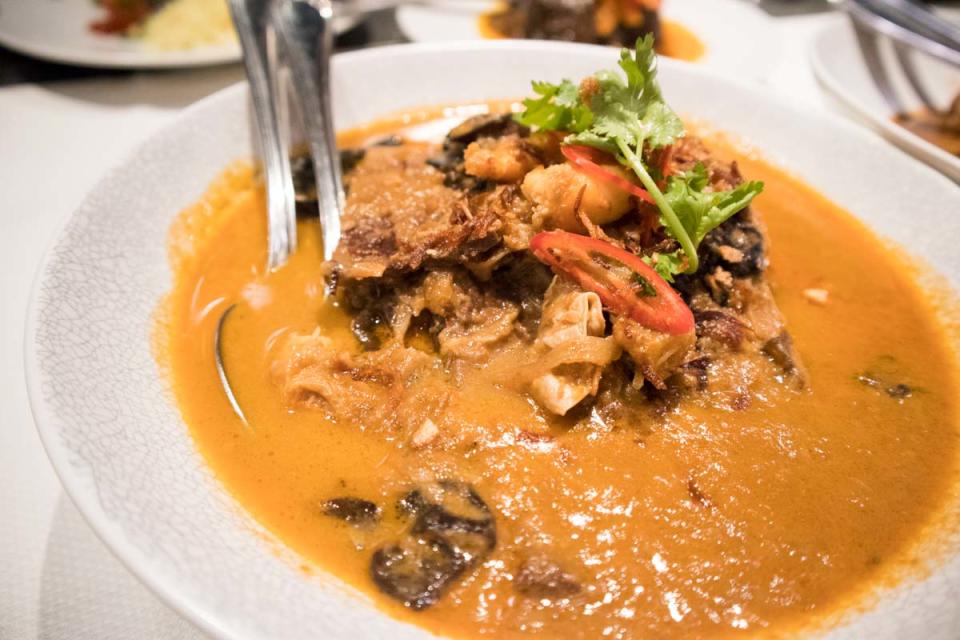
Elsewhere, a Beef Gulai (S$38++) is a deep shade of Earth. It's a tender slab of beef slathered in rich coconut gravy, tinged with the unmistakable flavour of masala. The Chap Chye Masak Rempah Titek ($30++) is a class act on its own. Having had many iterations in my lifetime, I proclaim this to be the chap chye that all others should model upon. Sure it's chock-full of delicious umami prawn stock, but it sets itself apart with the rempah titek—a blend of red chillies, shallots, and belacan. There's also a rare thing of a whole square of soft tofu submerged under layers of soft cabbage. It's divine.
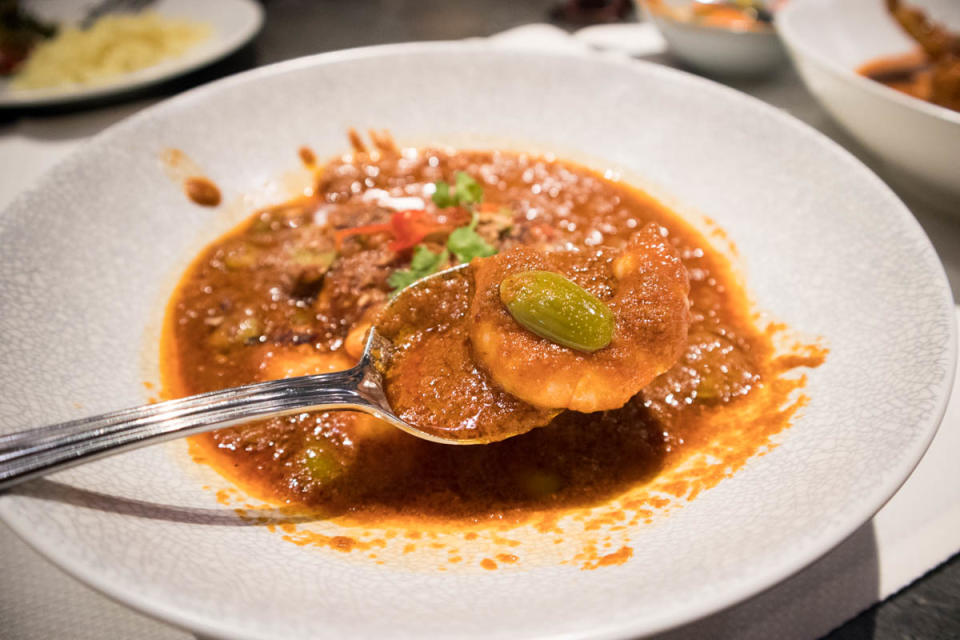
I reserve the highest praise for the Sambal Prawn Petai (S$20++), a recipe of Chef Damian's grandmother that, though brief in its ingredients, requires a culinary finesse that belies its simplicity. The petai is a bitter bean that's pungent—a quality that makes it well-loved by many. Here, you will find none of that bitterness in the petai—as if it has been gently coaxed out—leaving it tasting closer to gingko, making it that much easier for the palate. The prawns are, of course, fresh and bouncy, but it's the humble petai that elevates this dish.
READ MORE:
INTERVIEW: Chef Damian D’Silva of Kin on exploring identity through heritage food
Malaysian-style Nasi Lemak lands in Singapore
FOOD REVIEW: Go Noodle House from Malaysia opens at 313 Somerset for a slurping good time
7 Chinese New Year feasts to usher in the Year of the Rat
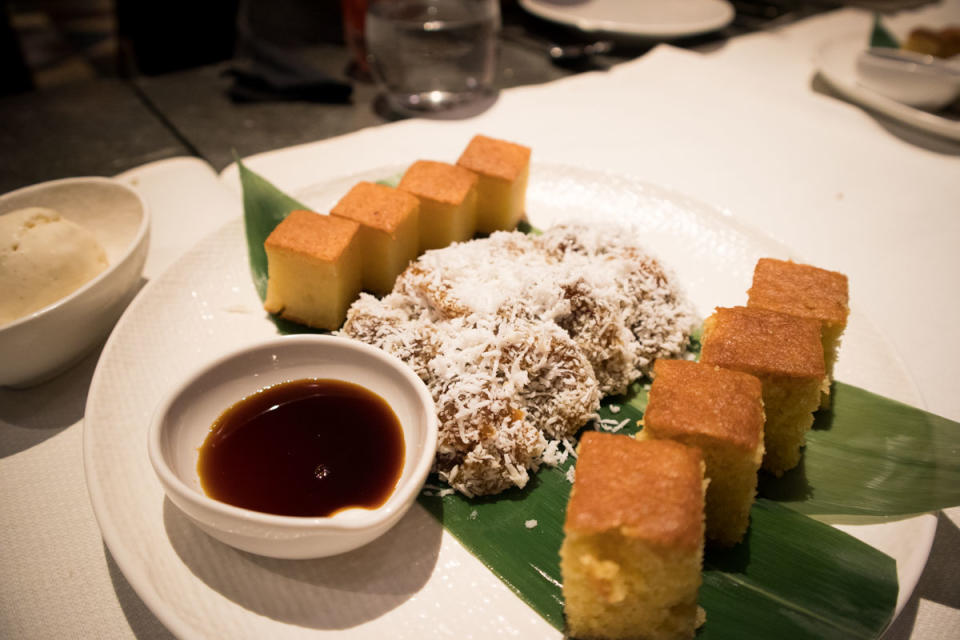
The dessert sampler (S$20++) is the perfect denouement to a meal that has thus far, taken me on a gastronomical roller-coaster ride. It comes with three traditional kueh—sugee cake, kueh bengkah, and kueh kosui. The last time I ate a kueh bengkah was a decade ago, and biting into this square of baked tapioca cake gives me all sorts of warm and fuzzy feelings. It is soft, dense, and a heady aromatic blend of santan and pandan leaves. The kueh kosui is equally soft and gives way to bite almost too quickly. It makes my heart sing.
I left Kin excited to tell everyone I know and every person I meet about this wonderful place that seamlessly melds a reverence for heritage with a certain culinary finesse. I want as many people as possible to experience the hospitality and brilliance of Kin. Long may its reign hold supreme.
Website | Reservations | 31 Bukit Pasoh Rd S089845
Lunch: 12pm to 1.30pm (last seating)
Dinner: 6pm to 9.30pm (last seating)
Closed on Sundays


